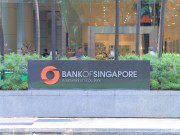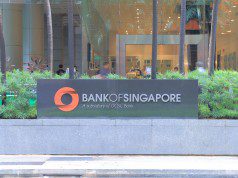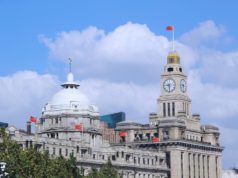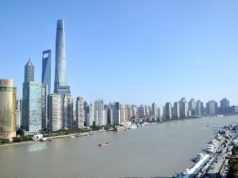FSDC 2022 Research Paper on Asset & Wealth Management in Hong Kong: Tax Recommendations Towards Further Development
The Hong Kong Financial Services Development Council (FSDC) has released the 2022 research paper on Asset & Wealth Management in Hong Kong, with tax recommendations to support Hong Kong financial industry development to stay competitive as a premier global asset and wealth management hub. Hong Kong is the leading asset & wealth management centre in Asia and internationally with combined AUM of $4.5 trillion (2020), with the Stock Exchange of Hong Kong (SEHK) as Asia’s 4th largest stock exchange (market capitalisation) and 7th largest in the world. In the research paper released, Financial Services Development Council (FSDC) has identified 3 key areas where tax can play a key role in supporting Hong Kong Asset & Wealth Management: 1. Promoting asset classes that are currently under developed in Hong Kong by providing incentives, clarity and operational efficiency. 2. Attracting institutional investors by providing a level playing field in terms of tax to each type of asset owners. 3. Addressing other deficiencies in the unified profits tax exemption for funds (UTE) and the open-ended fund company (OFC) regime. (Asset Classes: Debt capital market, Fixed income, Private credit, distressed debts and NPLs, Infrastructure funds, Pension funds, Endowment funds, Family office investment vehicles, insurance companies, employee investment vehicles, co-investment vehicles) See below for key highlights | Read Report: FSDC Research Paper
“ Leading asset & wealth management centre in Asia and internationally with combined AUM of $4.5 trillion (2020) “
FSDC Research Paper on Asset & Wealth Management in Hong Kong: Presentation & Panel
Panellists:
- Mr Darren Bowdern, Partner, Tax, Hong Kong, Head of Alternative Investments, KPMG China (See bio)
- Mr Rex Ho, New Business Committee member, FSDC; Asia Pacific Financial Services Tax Leader, Mainland China and Hong Kong SAR Financial Services Tax Leader, Hong Kong Asset & Wealth Management Tax Leader, PricewaterhouseCoopers Limited (PWC) (See bio)
- Ms Florence Yip, JP , Senior Advisor, PricewaterhouseCoopers Limited (See bio)
- Dr King Au, Executive Director, FSDC (See bio)
Moderator:
Dr Rocky Tung, Director and Head of Policy Research, FSDC (See bio)
FSDC Research Paper on Asset & Wealth Management in Hong Kong: Tax Recommendations towards Further Development

Hong Kong Financial Services Development Council (FSDC) has identified the following 3 key areas where tax can play a pivotal role to bring Hong Kong’s AWM industry to greater heights.
- Promoting asset classes that are currently under developed in Hong Kong by providing incentives, clarity and operational efficiency.
- Attracting institutional investors by providing a level playing field in terms of tax to each type of asset owners.
- Addressing other deficiencies in the unified profits tax exemption for funds (UTE) and the open-ended fund company (OFC) regime.
Overview
- Hong Kong is a leading asset & wealth management centre in Asia and internationally
- Managing a combined AUM of $4.5 trillion (2020)
- The Stock Exchange of Hong Kong (SEHK) is Asia’s 4th largest stock exchange in terms of market capitalisation and 7th largest in the world
1) Promoting asset classes that are currently underdeveloped in Hong Kong
Debt capital market
- Bank of International Settlements: Hong Kong outstanding international debt instruments totalled $564 billion (8% of UK, 1% of US)
- Hong Kong’s role in debt markets does not compare to its role in equity markets (smaller)
- The debt markets, along with the accompanying currency markets, are much larger globally.
- To advance Hong Kong financial centre: Hong Kong’s development need is in the area of debt, which is one of the components of fixed income, currencies and commodities
- In 2009: Launched Government Bond Programme to “promote further and sustainable development of the local bond market
- In 2018: HKMA introduced the Government’s Pilot Bond Grant Scheme, a 3-year scheme to attract bond issuers to Hong Kong, providing first time bond issuers with a grant to cover half its eligible expenses, subject to meeting specified criteria upon application
- In 2019: the Government also amended the qualifying debt instrument (QDI) scheme to expand the tax exemption available and increased the types of qualifying instruments by including debt securities listed on the SEHK. The intention behind these changes was for Hong Kong investors to enjoy a tax concession for interest income and trading profits derived.
- Hong Kong: To raise the awareness of current tax relating to QDIs, the FSDC recommends that Hong Kong’ tax concessions on QDIs should be more widely publicised.
Reviewing the tax regime for the debt capital market
Fixed income (including funds that invest in bonds, marketable fixed income and other debt instruments)
- Survey: 58% of managers surveyed see the ability to structure a fund effectively – tax and fund structuring specifically – as their biggest regulatory challenge.
Private credit, distressed debts and NPLs
- Hong Kong had taken efforts to change its tax policies to facilitate private funds to invest in non-Hong Kong private equities, and later to allow private funds to invest in Hong Kong private equities. However, the current tax policies do not offer strong support to private credit.
- Following the 2008-09 global financial crisis, private credit has been transformed into a major global institutional asset class
- In 2020, private credit managers deployed almost $200 billion
- There is also a significant uptick expected in institutional investment in the private credit asset class in the coming years, especially in Asia – with 88% of pension funds, 80% of insurers, and 67% of sovereign wealth funds surveyed in 2019 expecting more investment into private credit strategies from their investors.
- Survey for credit fund managers: 60% of respondents said that they would or would be more likely to establish or expand their business operations in Hong Kong if the Hong Kong tax regime became more attractive, for example, by way of tax concessions.
- Survey: Majority of respondents considered Hong Kong’s tax treatment of credit funds weaker than other jurisdictions.
Infrastructure funds
- Currently under the UTE, if a fund invests in a private company that directly or indirectly holds more than 10% of its assets in immovable property, the fund will be taxed on the profits arising from such an investment.
- According to the Global Competitiveness Report 2019 of the World Economic Forum, Hong Kong’s infrastructure is ranked third in the world.
- The FSDC understands the policy intention for having the 10% threshold on immovable property investments in place.
Recommendations
- In order to raise the awareness of current tax relating to QDIs, the FSDC recommends that Hong Kong’ tax concessions on QDIs should be more widely publicised.
- The Hong Kong Government should explore ways to facilitate the flow of international debt capital by attracting appropriate candidates, and encouraging a variety of investors with a view to diversifying the market (in terms of investors’ geographical location (i.e. cross-border listings) and issuer types).
- the FSDC recommends that the legislation should be amended to clarify that interest income on debt investments constitutes a qualifying transaction.
- To this end, the FSDC recommends that issuers which are not financial institutions would need similar certainty and/or flexibility in this respect to increase the number of bond issuances in Hong Kong.
- FSDC recommends extending the tax exemption to privately offered funds investing in distressed debts, NPLs and credit strategies.
- The FSDC recommends amending the relevant section of the law to allow that infrastructure assets be excluded from the requirement in that section.
2) Attracting institutional investors by providing a level playing field in terms of taxation to each type of asset owners
The FSDC recommends that a taxation regime should be applied on a fair and equitable basis for each type of asset owners.
This section lays out the relevant tax regime recommendation details for asset owners including pension funds, endowment funds, family office investment vehicles, insurance companies, employee investment vehicles, and co-investment vehicles.
Pension funds
- Sovereign wealth and pension funds have emerged as an important investor class, with $56 trillion of retirement assets as at the end of 2020
- Pension funds hold the bulk of assets among institutional investors, accounting for approximately 57% of the market in 2020.
- Private and public pension funds are the top two largest investors in private equity.
- In reality, there is room for improvement in this regard. Under the UTE, where the pension fund of a company is managed or operated by its employees and/or beneficiaries who are also the “participating persons” of the fund, there is no certainty that the pension fund would be considered as a “fund”. In other words, overseas pension funds that have set up wholly owned subsidiaries to be their own fund manager may not qualify as a fund, and therefore would not be entitled to the beneficial treatment otherwise provided under the UTE. This is problematic as it incentivises such pension funds to establish themselves, hold assets and potentially conduct value added activity elsewhere.
The FSDC recommends changes to the tax law to encourage pension funds to set up offices in Hong Kong for their in-house fund management arm.
It considers one of the simplest ways of doing this is to extend the definition of a “fund” or create a definition of “qualified institutional investor” under the UTE to include (genuine) pension funds.
Endowment funds (and foundations, institutional investors that invest to advance their missions)
- An endowment fund is typically an investment fund established by a not-for-profit organisation to invest capital that it has received in the form of donations to generate returns that can be used to support the organisation’s ongoing operation.
- the Harvard endowment fund has approximately $53.2 billion of assets under management in the fiscal year of 2021.
Therefore, the FSDC recommends that a specific provision should be included to treat endowment funds as a fund or a “qualifying institutional investor” under the UTE.
Family office investment vehicles
- A family office is, in its simplest form, the private office for a family of significant wealth. The estimated total AUM of $5.9 trillion attributable to family offices is equivalent to almost 8% of the total AUM for the world’s asset management businesses as at the end of 2018.
- Asia Pacific is the largest owner of wealth in the world and home to the fastest billionaire population growth.
- Hong Kong ranked 3rd in terms of density of ultra-wealthy individuals – higher than jurisdictions such as Switzerland, Luxembourg and Singapore.
- In fact, estimates predict that assuming Hong Kong can attract 30% of new family offices that are set up in Asia every year, this will bring an additional AUM of $48.7 billion and generate additional spending of as much as $600 million (equivalent to 0.2% of GDP), which will compound over time.
- Once a family office is set up in one jurisdiction, it would be very difficult to entice it to relocate to Hong Kong. As such, urgent action is needed for Hong Kong to stay competitive and capture the opportunities from new generations of wealth. However, the FSDC acknowledges that tax is just one of the many considerations a family office would take into account before setting up its operations in any jurisdiction. The FSDC notes that the ease and cost of compliance with the regulatory framework is another key factor.
Recommendations
- The FSDC recommends a tax incentive or extending the tax exemption to include family office investment vehicles.
- The FSDC recommends revisiting the applicability of the tax exemption to insurance companies.
- The FSDC recommends extending the tax exemption to include employee investment vehicles.
- The FSDC recommends extending the tax exemption to include co-investment vehicles.
3) Addressing other deficiencies in the current UTE and OFC regime
Unified profits tax exemption for funds (UTE) and the open-ended fund company (OFC)
- Creating streamlined and friendly UTE and OFC regimes
- Expanding the scope of funds that can fall within the exemption
- Expanding the scope of permitted asset classes (particularly private investments) that can fall
- within the exemption
- Removing the existing deeming provisions
- Removing or refining the restriction on ‘short-term assets’
- Streamlining the procedure for issuing certificates of resident status
- Providing an exemption of Hong Kong stamp duty on the transfer of stocks in open ended fund companies (OFC)
Sign Up / Register
Caproasia Users
- Manage $20 million to $3 billion of assets
- Invest $3 million to $300 million
- Advise institutions, billionaires, UHNWs & HNWs
Caproasia Platforms | 11,000 Investors & Advisors
- Caproasia.com
- Caproasia Access
- Caproasia Events
- The Financial Centre | Find Services
- Membership
- Family Office Circle
- Professional Investor Circle
- Investor Relations Network
Monthly Roundtable & Networking
Family Office Programs
The 2025 Investment Day
- March - Hong Kong
- March - Singapore
- July - Hong Kong
- July - Singapore
- Sept- Hong Kong
- Sept - Singapore
- Oct- Hong Kong
- Nov - Singapore
- Visit: The Investment Day | Register: Click here
Caproasia Summits
- The Institutional Investor Summit
- The Investment / Alternatives Summit
- The Private Wealth Summit
- The Family Office Summit
- The CEO & Entrepreneur Summit
- The Capital Markets Summit
- The ESG / Sustainable Investment Summit




































